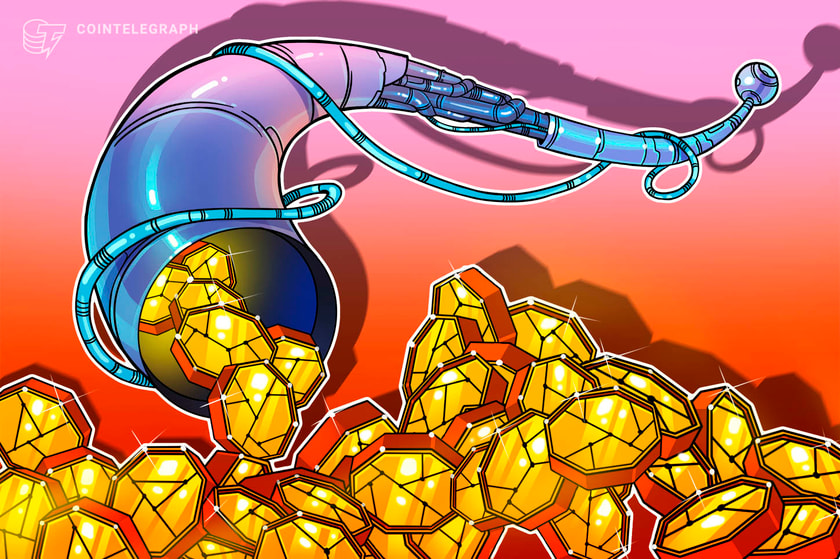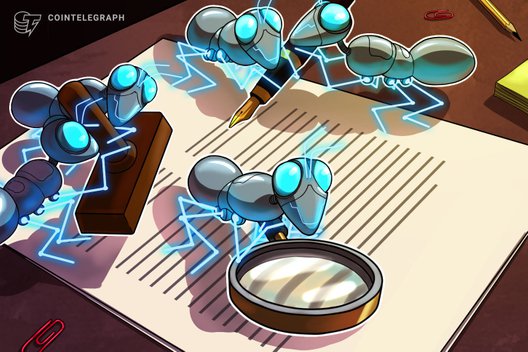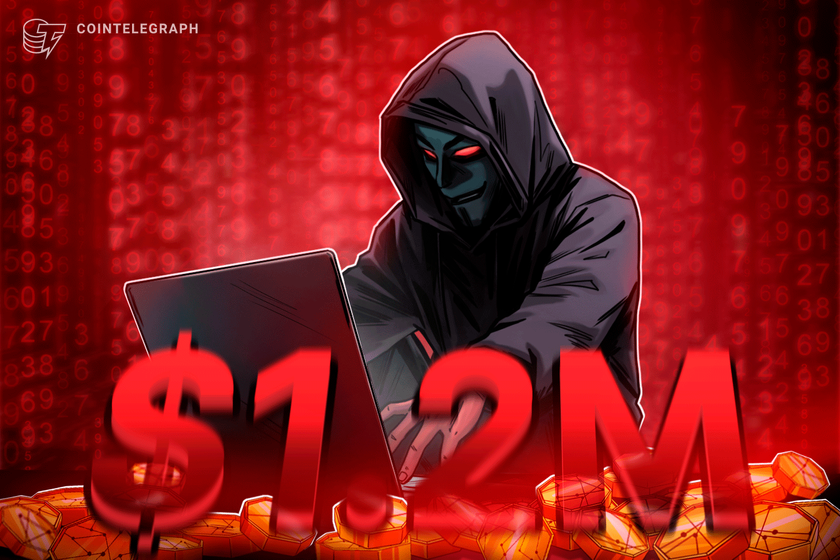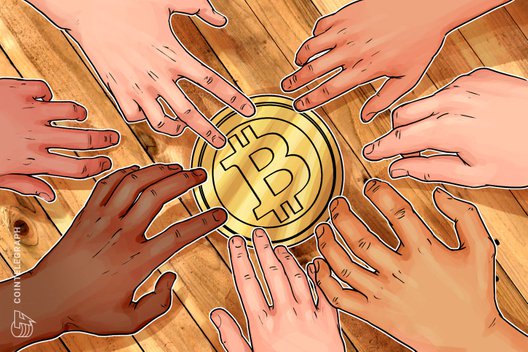Bitcoin SV (BSV) — the altcoin that emerged during the bitcoin cash (BCH) hard fork last November and which took the moniker “Satoshi’s vision” — has been on the periphery of crypto news this week. BSV is famously backed by Craig Wright, an Australian entrepreneur, chief scientist at his startup called nChain and self-proclaimed Satoshi Nakamoto.
After Binance, one of the world’s largest cryptocurrencies, decided to delist BSV amid Wright’s campaign to deanonymize one of his critics, other major platforms — including ShapeShift and Kraken — followed suit.
As a result, the price of BSV tanked. Meanwhile, Wright and his team have purportedly served some of their critics with court documents, demanding public apologies.
#WeAreAllHodlonaut: How Wright has enraged the crypto community
The delisting marathon was preceded by Craig Wright’s run-in with an anonymous Twitter personality nicknamed Hodlonaut, who also organized the Lightning Torch campaign. According to crypto news outlet Coingeek (founded by billionaire Calvin Ayre, who has been vocal about his support for BSV), Hodlonaut targeted the Australian businessman with offensive tweets, calling him “a very sad and pathetic scammer. Clearly mentally ill,” and allegedly participating in the creation of the #CraigWrightIsAFraud hashtag.
While Craig Wright has repeatedly claimed that he is Satoshi Nakamoto, much of the cryptocurrency community seems skeptical about those statements, widely referring to Wright as “faketoshi.” Back in December 2015, Wired and Gizmodo reported that the Australian computer scientist might be the creator of bitcoin (BTC), but a substantial part of the evidence presented in the reports — both of which cited an anonymous source who had contacted them voluntarily — was soon proved false. Wired subsequently assumed that Wright “was likely pulling an elaborate hoax or con” to present himself as Satoshi to the public.
On April 11, Coingeek went as far as to set a $5,000 bounty in BSV for information regarding the true identity of Hodlnaut, while also demanding that the Twitter user should publicly apologize to Wright both on the social media platform and during an open court hearing. The article contained informal language, alleged pictures of Hodlonaut, his or her approximate location, and explicitly called for deanonymization:
“Wright is demanding that the individual behind the @Hodlonaut account tweet an apology to him, make a statement in open court apologizing to Wright and acknowledge the falsity of the allegations made against Wright. Instead, Hodlonaut seems to have hidden under his mother’s skirt and is nowhere to be found.”
Hodlonaut has since deleted his or her Twitter account. In response, the cryptocurrency community on Twitter began trending a #WeAreAllHodlonaut hashtag to show support. Moreover, an eponymous website was created to crowdfund BTC in order to help Hodlonaut fund his or her legal battle with Wright. According to the information posted on the website, the pseudonymous Twitter user had received a letter from Wright’s legal team before erasing his or her online presence. In it, Wright’s lawyers were allegedly threatening to sue Hodlonaut for defamation in a United Kingdom court (as per Wright’s LinkedIn profile, the Australian entrepreneur currently resides in London. According to earlier reports, he lived in Sydney, and local police had raided his house).
As of press time, more than $28,700 has been raised via weareallhodlonaut.com, which is more than 140% of the initial goal of $20,000. The website states that Hodlonaut personally controls the funds from this campaign and that any excess contributions will be sent to Bitcoin Venezuela, the same charity-focused organization that received donations from the Lightning Torch campaign.
Cointelegraph has reached out to Preston Byrne, an attorney at Byrne & Storm and who claims be to handling Hodlonaut’s case pro bono, but he declined to comment.
Notably, earlier in March of this year, not long before erasing his presence on Twitter himself, Wright tweeted that he will be “taking action aggressively to remove any site that is in error or makes false claims,” referring to people calling him a fraud, among other things.
“You do not have a right to lies under ‘free speech’ nor harassment, nor libel and slander,” he wrote. “If an error is reported in a malicious context concerning me, expect to be living in a barrel when we finish with you.”
Peter McCormack, the host of the podcast “What Bitcoin Did,” is another person who has reportedly been approached by Wright’s legal team. According to McCormack’s tweets, after he tagged Calvin Ayre’s account to declare that Wright is a fraud and provided his personal address in Bedford, U.K. for legal correspondence, he allegedly received a letter from SCA Ontier LLP, a London-based law firm. In it, like in the case of Hodlonaut, he was asked to publicly apologize to Wright both on Twitter and in court.
Moreover, Wright’s attorney reportedly stated that his client “has not fraudulently claimed to be Satoshi Nakamoto” since his client allegedly is Satoshi Nakamoto. The statement further claims that Wright wrote bitcoin’s original white paper, sent the first bitcoin transaction and played an integral role in the network’s development.
McCormack then shared what he calls his “formal response,” where he declined to apologize to Wright and asked him to provide evidence that would confirm that he is Satoshi Nakamoto. On April 18, McCormack was allegedly served with a service claim for 100,000 British pounds (around $130,000).
Seamus Andrew, managing partner at SCA ONTIER LLP, has verified to Cointelegraph that his firm represents Craig Wright and that they are in the process of taking legal action, but did not specify whether or not they were suing McCormack or Hodlonaut.
“I confirm that we act for Craig Wright, and that we are in the process of bringing legal proceedings against certain individuals and entities who have defamed our client,” Andrew said via email.
Cointelegraph has requested for a comment from McCormack to clarify the details of his case, however, as of press time, he has not replied.
Binance, ShapeShit, Kraken and other platforms have delisted BSV
The situation escalated on April 11, when Changpeng Zhao, founder and CEO of Binace — currently the world’s fourth-largest crypto exchange by adjusted daily trade volume — warned that he would delist BSV (which trades under the ticker BCHSV on the platform) if the creator of the altcoin — i.e., Craig Wright — does not correct his behavior. The tweet seemed like a reaction to Wright’s action against Hodlnaut:
“Craig Wright is not Satoshi. Anymore of this sh!t, we delist!”
The community reacted to Zhao’s warning by asking various exchanges to delist BSV and by kick-starting a #DelistBSV hashtag.
On April 15, Binance officially announced that it will delist BSV. Specifically, the exchange stated that, as of April 22, it will delist the altcoin and cease trading all of its trading pairs. In the accompanying statement, Binance explained that it regularly reviews assets listed on its platform “to ensure that it [the asset] continues to meet the high level of standard we expect.” The firm went on to explain that it only delists a coin after a second in-depth review, noting, “We believe this best protects all of our users.”
Thus, the exchange listed the responsiveness to its due diligence requests, the level and quality of the coin’s development, as well as “evidence of unethical / fraudulent conduct” among the factors that it takes into account before delisting a cryptocurrency.
Later, on April 15, anonymous exchange ShapeShift and crypto data supplier and cryptocurrency wallet Blockchain.com also announced they were dropping BSV. On Twitter, ShapeShift CEO Erik Voorhees confirmed that the company came to a decision to stop listing the altcoin for reasons similar to those of Binance:
“We stand with @binance and CZ’s sentiments. We’ve decided to delist Bitcoin SV #BSV from @ShapeShift_io within 48 hrs.”
Other crypto platforms took a slightly different approach, letting their users decide whether to delist or keep BSV via Twitter polls. For instance, instant crypto exchange service ChangeNow wrote:
“As a service strongly disagree with Craig Stephen Wright’s policies and business decisions – everything, really.
However, we believe that the @BitcoinSVNode community should not suffer because of some decisions one man made.
So, do you think we should #DelistBSV? $BSV #BSV”
Similarly, major United States crypto exchange Kraken has decided to delist BSV following the results of a Twitter poll. In the official press release, the platform said that BSV had “engaged in behavior completely antithetical to everything we at Kraken and the wider crypto community stands for.”
BSV price had tanked as much as 20% following the series of delisting announcements, according to data obtained from CoinMarketCap, but currently shows signs of a slight recovery. As of press time, it is trading around $60, gaining back around 5% during the past few days.
Notably, the delisting announcements drew a negative response from some community members. “I have no love for bsv but I also take no joy in seeing a biased, bot infested platform like twitter being used to shut coins down with the impression they are democratic votes on a unbiased platform,” a Redditor wrote on the r/btc subreddit.
“Delisting bitcoin SV from some of the popular exchanges certainly was harmful to the project,” Matthew Greenspan, eToro senior market analyst, told Cointelegraph over Skype after a warning that it was difficult for him to comment on the case since he knew Hodlonaut and participated in the Lightning Torch experiment.
“I would say it was a slap to bitcoin SV and its founders. […] Some of their opinions and threats have been extremely unpopular in the crypto community,” he said. “Now it will be harder for people to buy and sell it [BSV], and it will be harder for it to gain real liquidity in the market.” Greenspan also added that the results of the polls held by Kraken and other crypto platforms are “self-evident.”
Wright’s company, nChain, which designed bitcoin SV and is responsible for its technical development, has denounced the #DelistBSV campaign. “The sudden delisting of Bitcoin SV by some exchange is absolutely unjustifiable and sets a terrible precedent for the cryptocurrency industry,” Jimmy Nguyen, the chairman of nChain, told Cointelegraph.
According to Nguyen, the BSV network became much stronger after Binance, Kraken and other exchanges listed it on their platforms after November’s hard fork of the BCH network. Since then, more mining pools, wallets, applications and services have begun working with BSV, nChain’s chairman added, while the daily average block size of BSV was increased as well, showing technical development of the altcoin. “Therefore, there is even more reason to list BSV, not delist it,” Nguyen argued.
“The delisting decision is driven by personal dislike of Craig Wright and retaliation for steps Craig has taken to pursue personal legal rights against people he believes are defaming him,” Nguyen said. That, according to him, is a menacing sign for the community:
“A dangerous precedent has been set if an exchange uses its CEO’s personal dislike of a coin’s individual supporter as the reason to make delisting decisions. What if one day Vitalik Buterin took personal actions that offended an exchange CEO? Should that be the basis to delist Ethereum?” Nguyen asked. “Whether you agree with Craig Wright’s personal legal actions or not, Craig’s invoking of legal remedies are for a court of law to decide — not crypto exchanges.”
The nChain chairman also criticized the idea of using Twitter polls to decide whether to delist BSV, calling it “ridiculous.” He went on, saying:
“It’s not hard to imagine the Twitter polls are just providing cover for a delisting decision already made. Twitter polls are not even limited to the exchanges’ customers, can be easily manipulated by bots and multiple anonymous accounts, and create the climate for mob rule. I expect regulators around the world to take a critical look at this Twitter poll charade.”
When asked whether he condones Wright’s behavior, Nguyen repiled:
“Like every person, Craig is entitled to invoke whatever legal rights are available to him, and let the legal system decide. He is defending himself after years of cyber bullying. Craig now simply wants a court of law, rather than the Twitter-sphere or exchange CEOs, to decide.”
Alternative measures: Some platforms kept BSV or even delisted BCH instead for political reasons
Some crypto platforms deliberately chose not to follow suit and left BSV on their platforms. Thus, on April 16, OKEx, a massive cryptocurrency exchange that is currently ranked the number one exchange on CoinMarketCap based on adjusted trading volume, announced that it decided not to delist Wright’s controversial cryptocurrency after conducting “a rigorous review on BSV in terms of technology development, liquidity, and compliance.” The exchange wrote:
“According to the OKEx Token Delisting and Hiding Guideline, BSV currently does not meet our delisting criteria. As such, OKEx has no intention to delist BSV for the time being.
“As a neutral platform, OKEx respects the efforts of all dedicated teams in advancing the technology of Bitcoin and has no inclination to certain technical directions.”
Japanese financial services giant SBI Holdings went even further and declared it will delist BCH from its virtual currency exchange in June 2019. BSV, in turn, seems to remain listed on the SBI Virtual Currencies platform.
As per the original statement on the matter, SBI Holdings delisted BCH because of “a significant decrease in the market capitalization” and a “high possibility” of a 51% attack.
“If so [SBI Holdings delisting BCH while keeping BSV], it would be quite funny for them to delist Bitcoin Cash ABC [BCH] due to the possibility of a 51% attack and not to delist other coins,” market analyst Matthew Greenspan told Cointelegraph. “If you look at crypto51.app it shows you that a possibility of a 51% attack and Bitcoin Cash ABC is very low on that list, even lower than Ethereum… and Bitcoin SV is at the 5%.”
Notably, as Cointelegraph Japan reported, Yoshitaka Kitao, CEO and representative director of SBI Holdings, has a connection with the BSV founder, with Wright having revealed their close relationship in a tweet in January, demonstrating that he and Kitao spent time together and claiming that he treats Kitao as “a friend and man I respect a lot.”
Regardless of what happens next, the latest BSV drama has showcased the power that the community has over the market. Greenspan agrees with that statement. “Historically, we can see that community has an incredible influence over the technology and the paths that crypto takes,” he said. “Satoshi Nakamoto also predicted this as he spoke about hard forks and splits of the network. His sentiment was basically that the stronger fork or network will always survive whereas the lesser fork will be in deep trouble and we can see that clearly here.”









